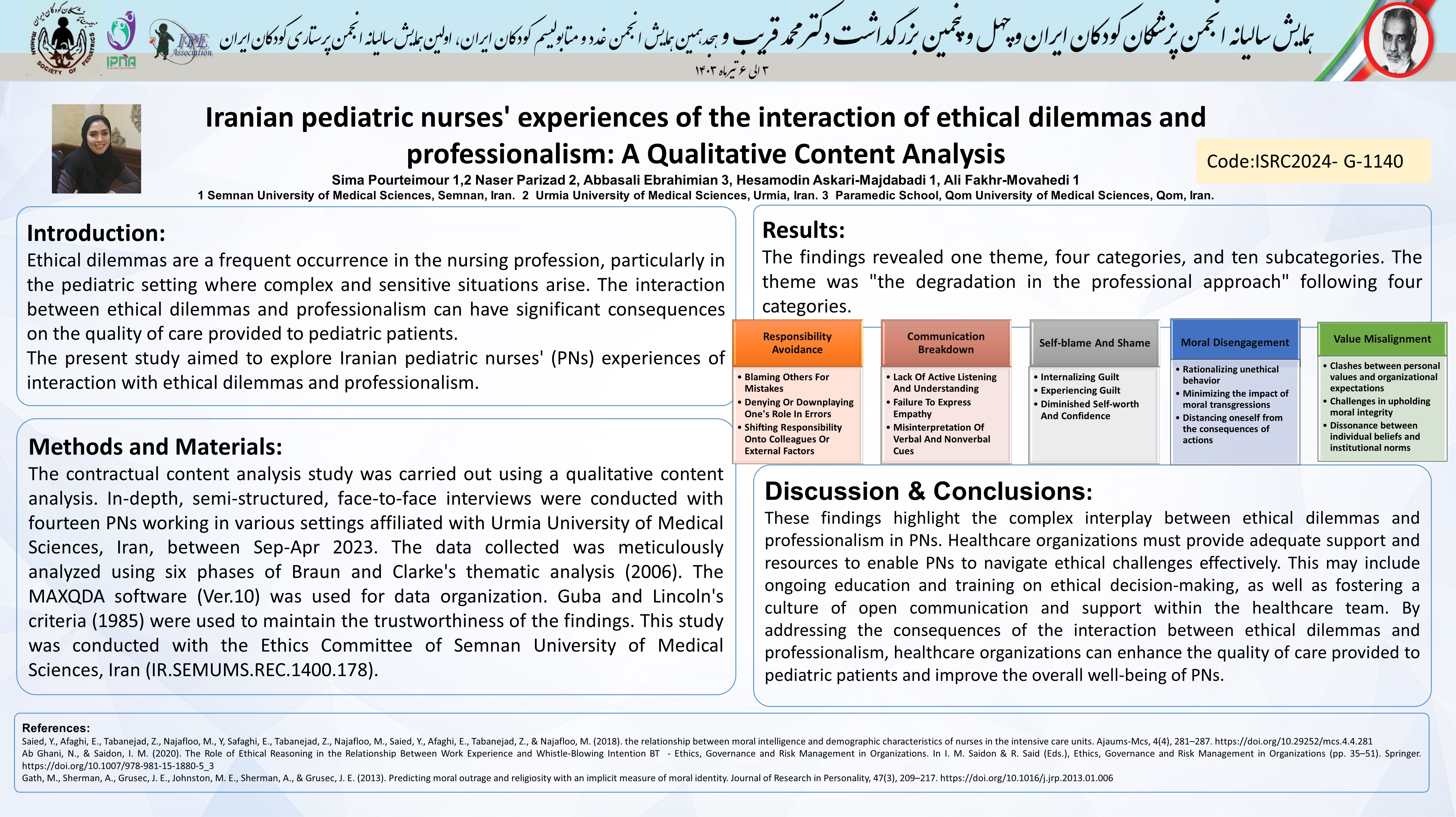تجارب پرستاران اطفال ایران از تعامل دوراهیهای اخلاقی و حرفهای گرایی: تحلیل محتوای کیفی
کد: G-1140
نویسندگان: Sima Pourteimour © ℗, Naser Parizad, Ali Fakhr-Movahedi , Abbasali Ebrahimian, Hesamodin Askari-Majdabadi
زمان بندی: زمان بندی نشده!
دانلود: دانلود پوستر
خلاصه مقاله:
خلاصه مقاله
Background: Ethical dilemmas are a frequent occurrence in the nursing profession, particularly in the pediatric setting where complex and sensitive situations arise. The interaction between ethical dilemmas and professionalism can have significant consequences on the quality of care provided to pediatric patients. The present study aimed to explore Iranian pediatric nurses' (PNs) experiences of interaction with ethical dilemmas and professionalism. Methods: The contractual content analysis study was carried out using a qualitative content analysis. In-depth, semi-structured, face-to-face interviews were conducted with fourteen PNs working in various settings affiliated with Urmia University of Medical Sciences, Iran, between Sep-Apr 2023. The data collected was meticulously analyzed using six phases of Braun and Clarke's thematic analysis (2006). The MAXQDA software (Ver.10) was used for data organization. Guba and Lincoln's criteria (1985) were used to maintain the trustworthiness of the findings. This study was conducted with the Ethics Committee of Semnan University of Medical Sciences, Iran (IR.SEMUMS.REC.1400.178). Results: The findings revealed one theme, four categories, and ten subcategories. The theme was "the degradation in the professional approach" following four categories including responsibility avoidance (blaming others for mistakes, denying or downplaying one's role in errors, shifting responsibility onto colleagues or external factors), communication breakdown (lack of active listening and understanding, failure to express empathy, misinterpretation of verbal and nonverbal cues), self-blame and shame (internalizing guilt, experiencing guilt, diminished self-worth and confidence), moral disengagement (rationalizing unethical behavior, minimizing the impact of moral transgressions, distancing oneself from consequences of actions), and value misalignment (clashes between personal values and organizational expectations, challenges in upholding moral integrity, dissonance between individual beliefs and institutional norms). Conclusion: These findings highlight the complex interplay between ethical dilemmas and professionalism in PNs. Healthcare organizations must provide adequate support and resources to enable PNs to navigate ethical challenges effectively. This may include ongoing education and training on ethical decision-making, as well as fostering a culture of open communication and support within the healthcare team. By addressing the consequences of the interaction between ethical dilemmas and professionalism, healthcare organizations can enhance the quality of care provided to pediatric patients and improve overall their well-being.
دیدگاه ها (0)
ارسال یک دیدگاه
ارسال دیدگاه توسط مدیریت بسته شده است.
